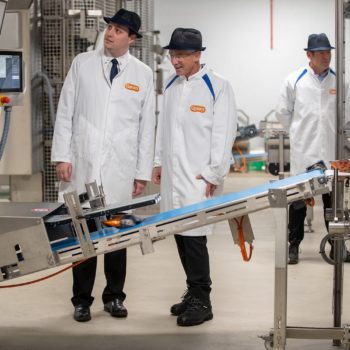Quorn opens world’s largest “meat alternative production facility”

Alongside the growing demand for healthier options and increased numbers of consumers opting for a vegetarian or "flexitarian" diet, Quorn Foods has expanded its production facility in Bellingham, England, to become the world's largest of its kind.
19 November 2018
Quorn Foods’ production site in Billingham, England, has become the world’s largest meat alternative production facility, after undergoing a 9,500sq m expansion project. The £150m investment has seen production capacity double at the facility, adding approximately 20,000 tonnes per annum.
The massive investment comes as a reflection of the significant increase in vegetarian and “flexitarian” consumers; according to Quorn, the UK now boasts the most advanced meat-free market in the world.
When it’s fully up and running, the new facility will ship more than one million packs of Quorn products per week – the equivalent of 1,600 cattle. Advances in efficiency will see emissions continue to fall at the site, having already reduced by 35% since 2012.
Marking the reopening of the facility, Quorn Foods chief executive Kevin Brennan said that the company is already the world leader in meat alternatives, having seen growth of 16% in the past year.
“We see decades of growth ahead of us,” Brennan said optimistically, “as consumers respond to growing environmental concerns around meat production. We provide dramatic sustainability benefits compared to meat and with this new facility will enhance those benefits further.
“Sustainability is at the heart of our organisation and we are committed to ensuring we are being responsible with the carbon footprint of our business,” he said.
The opening of the new site follows Quorn Foods’ elimination of 297 tonnes of non-recyclable plastic from its supply chain and the pledge to achieve 100% recyclable, reusable or compostable packaging by 2025.
With scientists predicting a climate change point-of-no-return as early as 2035, flexitarian and meat-free diets have an important role to play. The green-house gas emissions from a bag of Quorn Mince are 90% lower than beef mince.
The factory expansion builds on Quorn Foods’ strongest ever year of growth. If growth proceeeds as it has, and as it is predicted, it is on track to become a billion-dollar business by 2027.



 Print
Print


Fans 0
Followers